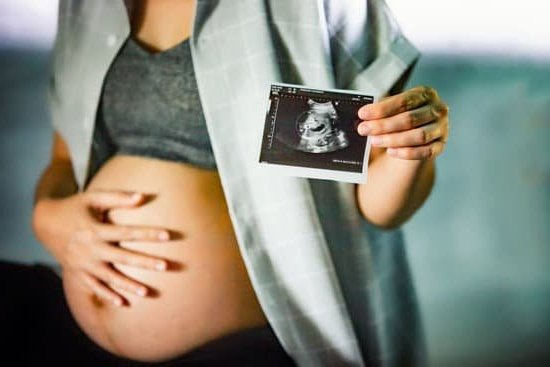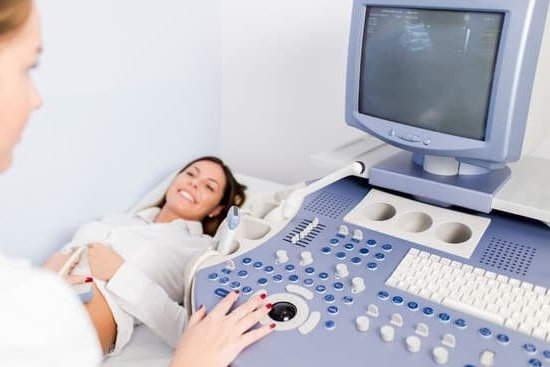Ectopic pregnancies can be a cause of concern for many women, prompting questions about the pain associated with this condition. Does ectopic pregnancy pain come and go? This article aims to provide a comprehensive understanding of ectopic pregnancy, shedding light on its distinct differences from a normal pregnancy.
An ectopic pregnancy occurs when a fertilized egg implants itself outside of the uterus, most commonly in the fallopian tubes. This abnormal implantation can lead to serious complications if left untreated. Unlike a normal pregnancy where the fertilized egg implants in the uterus lining, an ectopic pregnancy poses significant risks to the mother’s health.
Recognizing the signs and symptoms of ectopic pregnancy is crucial for early detection and treatment. Some key indicators include abdominal or pelvic pain, vaginal bleeding, dizziness or fainting, shoulder tip pain, and gastrointestinal symptoms like nausea or diarrhea. Understanding these warning signs can help individuals seek medical attention promptly and potentially prevent serious complications.
Signs and Symptoms of Ectopic Pregnancy
Ectopic pregnancy is a serious condition in which a fertilized egg implants itself outside the uterus, most commonly in the fallopian tube. This abnormal implantation can result in various signs and symptoms that differ from those of a normal pregnancy. It is important for individuals to be aware of these indicators to seek prompt medical attention and prevent potential complications.
Here are some key signs and symptoms of ectopic pregnancy to watch out for:
- Abdominal or pelvic pain: One common symptom of ectopic pregnancy is sharp or stabbing pain in the abdomen or pelvis. This pain may come and go, depending on the location and severity of the implantation.
- Vaginal bleeding: Another sign to be vigilant about is vaginal bleeding, which may be lighter or heavier than normal menstrual bleeding. It can sometimes be mistaken for a regular period.
- Shoulder tip pain: In some cases, ectopic pregnancy can cause referred pain to the shoulder tip due to irritation of the diaphragm from internal bleeding. This type of pain should not be ignored.
If you experience any of these symptoms, especially if you have a known risk factor for ectopic pregnancy such as previous pelvic infections or tubal surgeries, it is crucial to consult with a healthcare provider promptly. Early detection and intervention can help prevent complications associated with ectopic pregnancies such as rupture or internal bleeding.
Causes of Ectopic Pregnancy
Ectopic pregnancy occurs when a fertilized egg implants itself outside of the uterus, typically in the fallopian tubes. This abnormal implantation can lead to serious complications if left untreated. There are several factors that can contribute to the development of an ectopic pregnancy, including:
- Previous reproductive issues: Women who have a history of infertility, pelvic inflammatory disease (PID), or endometriosis may have a higher risk of experiencing an ectopic pregnancy.
- Abnormalities in the fallopian tubes: Conditions such as scarring from previous surgeries or infections, as well as structural abnormalities in the fallopian tubes, can increase the likelihood of an ectopic pregnancy.
- Hormonal imbalances: Certain hormonal imbalances, such as those caused by conditions like polycystic ovary syndrome (PCOS) or thyroid disorders, can disrupt the normal implantation process and result in an ectopic pregnancy.
It’s important to note that while these factors can contribute to the risk of developing an ectopic pregnancy, sometimes the exact cause remains unknown. Understanding these potential causes can help individuals recognize their risk factors and seek timely medical attention if they experience any concerning symptoms.
If you’re wondering “does ectopic pregnancy pain come and go,” it’s important to consider that pain associated with an ectopic pregnancy can vary in intensity and consistency. Some individuals may experience sharp, stabbing pains that come and go intermittently, while others may have persistent dull aches or cramping. The location of the pain can also vary depending on where the ectopic implantation has occurred.
It’s crucial not to ignore any abdominal or pelvic pain that seems unusual or severe, especially if you suspect you may be pregnant and are experiencing other symptoms like vaginal bleeding or shoulder tip pain. Early recognition and prompt medical intervention are essential for managing an ectopic pregnancy effectively.
Diagnostic Tests for Ectopic Pregnancy
Ultrasound Imaging
One of the primary methods used by healthcare providers to diagnose ectopic pregnancy is through ultrasound imaging. This non-invasive procedure allows doctors to visualize the fetus’s location within the reproductive system. In the case of an ectopic pregnancy, the ultrasound will show the presence of the developing embryo outside of the uterus, typically in the fallopian tubes. This visualization helps confirm the diagnosis and allows healthcare providers to determine the best course of action for treatment.
Blood Tests
Another diagnostic test frequently used to confirm ectopic pregnancy is a blood test to measure levels of human chorionic gonadotropin (hCG), a hormone produced during pregnancy. In cases of ectopic pregnancy, hCG levels may not rise as expected, or they may plateau or decrease abnormally.
This abnormal pattern in hCG levels can indicate that the pregnancy is not progressing normally and may be located outside of the uterus. Blood tests, in conjunction with ultrasound imaging, provide healthcare providers with a comprehensive assessment to make an accurate diagnosis.
Laparoscopy
In some cases where ultrasound and blood tests are inconclusive, or if there are signs of complications such as internal bleeding or rupture, healthcare providers may recommend a laparoscopy. This minimally invasive surgical procedure involves making small incisions in the abdomen through which a camera is inserted to directly visualize the reproductive organs.
Laparoscopy allows for a more detailed examination and can confirm an ectopic pregnancy diagnosis definitively. It also provides an opportunity for simultaneous treatment as surgical intervention can be undertaken during the procedure if necessary.
While each diagnostic method has its own advantages and limitations, combining these tools can provide healthcare providers with a comprehensive understanding of whether an ectopic pregnancy is present and its specific characteristics. Early detection and confirmation of ectopic pregnancy are crucial for prompt intervention and ensuring the best possible outcome for patients experiencing this potentially life-threatening condition.
Does Ectopic Pregnancy Pain Come and Go
An ectopic pregnancy occurs when a fertilized egg implants itself outside of the uterus, typically in the fallopian tube. This condition is considered a medical emergency as it can lead to serious complications if not detected and treated promptly. One common question that individuals may have regarding ectopic pregnancies is, “Does ectopic pregnancy pain come and go?” The answer to this question is not always straightforward, as the level and type of pain experienced can vary from person to person.
Understanding Ectopic Pregnancy Pain
The pain associated with an ectopic pregnancy often begins as a sharp, stabbing sensation on one side of the abdomen or pelvis. This pain is caused by the stretching and potential rupture of the fallopian tube as the embryo grows.
While some individuals may experience constant, severe pain, others may notice that the pain comes and goes in waves. It is crucial to note that any sudden, intense abdominal or pelvic pain should never be ignored, especially in women who are at risk for ectopic pregnancy.
Factors Influencing Pain Levels
Several factors can influence the level of pain experienced during an ectopic pregnancy. The location of the implantation site, the size of the growing embryo, and whether or not there is internal bleeding all play a role in determining how severe and consistent the pain will be.
Additionally, individual pain thresholds and tolerance levels can affect how someone perceives and experiences discomfort. It is essential for healthcare providers to evaluate each patient’s unique situation carefully to provide appropriate care and management for their ectopic pregnancy symptoms.
Treatment Options for Ectopic Pregnancy
When dealing with an ectopic pregnancy, it is crucial to address the issue promptly and effectively. The treatment options for ectopic pregnancy vary depending on the individual’s health condition and the stage of the ectopic pregnancy. One of the common questions that arise is, “Does ectopic pregnancy pain come and go?” The answer to this question is that pain from an ectopic pregnancy can indeed vary in intensity and may come and go.
In cases where the ectopic pregnancy is detected early, a healthcare provider may opt for a less invasive approach known as methotrexate therapy. Methotrexate is a medication that helps stop the growth of the fertilized egg outside the uterus. This treatment option is often chosen when there is no rupture or minimal bleeding, and close monitoring can be maintained to ensure its effectiveness.
For more severe cases where there is a risk of rupture or significant bleeding, surgical interventions such as laparoscopy or laparotomy may be necessary. During these procedures, the healthcare provider aims to remove the ectopic pregnancy while preserving the fallopian tube if possible. It is essential to discuss with your healthcare provider about which treatment option would be most suitable for your specific situation in order to ensure the best possible outcome.
| Treatment Option | Description |
|---|---|
| Methotrexate Therapy | A medication that stops the growth of the fertilized egg outside the uterus |
| Laparoscopy or Laparotomy | Surgical interventions aimed at removing an ectopic pregnancy, potentially preserving the fallopian tube |
Complications of Untreated Ectopic Pregnancy
When left untreated, ectopic pregnancy can pose serious risks and complications to the affected individual. One of the most concerning complications of an untreated ectopic pregnancy is rupture of the fallopian tube or other organ where the embryo has implanted. This can lead to severe internal bleeding, which is a life-threatening emergency that requires immediate medical attention. The pain associated with a ruptured ectopic pregnancy is often intense and sudden, necessitating prompt intervention.
In addition to the risk of rupture, untreated ectopic pregnancy can result in abdominal pain that does not resolve on its own. This persistent pain can be caused by the growing size of the ectopic pregnancy, which can put pressure on surrounding tissues and organs. As the embryo continues to develop outside the uterus, it can cause damage to nearby structures, leading to further complications such as infection or scarring.
Furthermore, if an ectopic pregnancy is left untreated, it can impair future fertility and increase the chances of experiencing another ectopic pregnancy in subsequent pregnancies. The longer an ectopic pregnancy goes undiagnosed and untreated, the greater the likelihood of serious complications arising. Therefore, early detection and prompt medical intervention are crucial in managing this condition effectively and minimizing potential risks.
Emotional Impact of Ectopic Pregnancy
Ectopic pregnancy not only poses physical health risks but also carries a significant emotional burden for individuals and their loved ones. Coping with the diagnosis of an ectopic pregnancy can be overwhelming, as it involves facing the loss of a pregnancy while dealing with the potential complications and treatment options. The emotional impact is often underestimated, but it is crucial to address the mental well-being of those affected by this condition.
Individuals experiencing an ectopic pregnancy may go through a range of emotions, including grief, guilt, fear, and anxiety. The loss of a pregnancy can bring about feelings of sadness and despair, especially for those who were eagerly anticipating the arrival of a child.
Moreover, the uncertainty surrounding treatment decisions and potential future fertility issues can exacerbate these emotions. It is essential for individuals to seek support from healthcare providers, counselors, or support groups to navigate these complex emotions during such a challenging time.
For loved ones of individuals experiencing an ectopic pregnancy, offering empathetic support and understanding is key in helping them cope with the emotional toll of the situation. Partners, family members, and friends play a crucial role in providing comfort and reassurance to those going through this difficult experience.
By creating a safe space for open communication and expressing empathy, loved ones can help alleviate some of the emotional burden associated with ectopic pregnancy. Remembering that everyone copes differently and respecting individual feelings are vital components in supporting someone through this emotionally challenging journey.
| Emotional Impact | Ectopic Pregnancy |
|---|---|
| Feelings of grief | Sadness |
| Guilt | Fear |
| Anxiety | Emotional Burden |
Recovery and Aftercare for Ectopic Pregnancy
In conclusion, the recovery and aftercare for ectopic pregnancy are crucial aspects of ensuring the well-being of patients who have gone through this challenging experience. Following treatment, whether it be through medication or surgical intervention, individuals need to prioritize their physical and emotional healing. It is essential for patients to follow their healthcare provider’s recommendations diligently to aid in a smooth recovery process.
Physically, patients recovering from an ectopic pregnancy may experience some discomfort or pain as their bodies heal. It is common for individuals to wonder, “does ectopic pregnancy pain come and go?” The answer varies for each person, but it is important to communicate openly with healthcare providers about any concerns or unexpected changes in symptoms. Additionally, monitoring for signs of infection or other complications is vital during the recovery period.
Emotionally, the journey through an ectopic pregnancy and its treatment can take a toll on individuals and their loved ones. Seeking support from friends, family, support groups, or mental health professionals can help in processing the complex emotions that may arise. Remember that healing takes time, both physically and emotionally, so patience and self-care are key components of the recovery and aftercare process for ectopic pregnancy survivors.
Frequently Asked Questions
Is Ectopic Pregnancy Pain Left or Right?
Ectopic pregnancy pain can typically be felt on one side of the lower abdomen. It is often described as sharp and stabbing, and may radiate to the shoulder or neck. It is important to seek medical attention if you experience such pain.
How Do I Know if I’m Having an Ectopic Pregnancy?
If you suspect you may have an ectopic pregnancy, look out for symptoms like abdominal or pelvic pain, vaginal bleeding, dizziness, shoulder pain, and gastrointestinal symptoms. A positive pregnancy test followed by severe pain should also raise red flags.
What Is the Difference Between Ectopic Pain and Normal Pregnancy Pain?
Ectopic pain tends to be more intense and focused on one side of the abdomen, often accompanied by abnormal vaginal bleeding. On the other hand, normal pregnancy pains are usually mild cramping that occurs throughout the abdomen as the uterus grows and stretches to accommodate the fetus.

Welcome to my fertility blog. This is a space where I will be sharing my experiences as I navigate through the world of fertility treatments, as well as provide information and resources about fertility and pregnancy.





